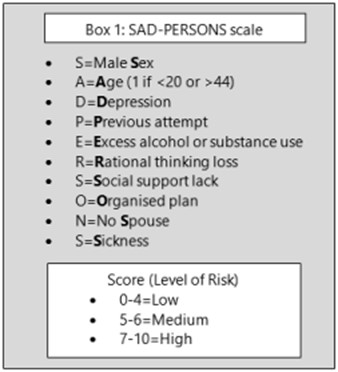A nurse is caring for a client who reports acute, moderate anxiety. Which of the following is the priority nursing action?
Instruct the client to remember past coping mechanisms.
Provide a diverting activity.
Encourage verbalization of feelings.
Remain with the client.
The Correct Answer is D
By remaining with the client, the nurse provides a sense of support and security. This presence can help alleviate the client's anxiety and provide reassurance. It also ensures that the nurse is available to assess the client's condition, offer therapeutic communication, and intervene if the anxiety escalates or the client becomes overwhelmed.
While the other options are also beneficial interventions for managing anxiety, they are not the priority in this situation. Instructing the client to remember past coping mechanisms (Option A) can be helpful, but the immediate presence of the nurse is more important to provide immediate support.
Providing a diverting activity (Option B) can be beneficial to distract the client from their anxiety, but it does not address the underlying anxiety or provide direct support.
Encouraging verbalization of feelings (Option C) is important for therapeutic communication, but it may not be the initial priority when the client is experiencing acute anxiety.
Nursing Test Bank
Naxlex Comprehensive Predictor Exams
Related Questions
Correct Answer is A
Explanation
In this scenario, the nurse's priority should be initiating suicide precautions. Safety is of utmost importance when caring for a client following a suicide attempt. By implementing suicide precautions, the nurse can take steps to ensure the client's physical and emotional well-being, such as removing potential means of self-harm and closely monitoring the client's behavior. This action aims to prevent further harm and promote a safe environment for the client.
Incorrect:
B- Administering the Hamilton Depression Scale: While assessing the client's level of depression is important, it is not the priority in this situation. The client has just attempted suicide, indicating a high level of risk. Therefore, the nurse should prioritize safety measures and immediate interventions rather than administering a depression scale.
C- Making a contract with the client for eating behavior: While addressing the client's eating behavior is important, it is not the priority in this situation. The client has just attempted suicide, indicating a significant risk to their life. Ensuring their safety and providing appropriate mental health support take precedence over addressing their eating behavior.
D- Reviewing the client's toxicology laboratory report: While reviewing the client's toxicology report may provide valuable information about substance abuse, it is not the priority in this scenario. The immediate concern is the client's safety following a suicide attempt. The nurse should focus on implementing suicide precautions and addressing the client's emotional and physical well-being.

Correct Answer is ["A","B","C","E"]
Explanation
When caring for an adolescent female with an eating disorder, the nurse should expect the following manifestations:
A- Amenorrhea: Amenorrhea refers to the absence of menstruation, which is commonly seen in individuals with eating disorders, particularly in cases of severe weight loss or malnutrition.
B- Altered body image: Individuals with eating disorders often have a distorted perception of their body shape and size. They may see themselves as overweight or have a negative body image, even when they are significantly underweight.
C- Hyperactivity: Some individuals with eating disorders may exhibit excessive physical activity or restlessness. This hyperactivity can be a result of increased energy expenditure, driven by a fear of weight gain or a compulsive need to burn calories.
E- Bradycardia: Bradycardia, or a slow heart rate, is a common finding in individuals with severe malnutrition or very low body weight. It can be a result of the body's adaptive response to conserve energy in a state of limited food intake.
Incorrect:
D- Verbalized desire to gain weight is not typically expected in individuals with eating disorders. They may express a desire to lose weight or have a fear of gaining weight instead.
Whether you are a student looking to ace your exams or a practicing nurse seeking to enhance your expertise , our nursing education contents will empower you with the confidence and competence to make a difference in the lives of patients and become a respected leader in the healthcare field.
Visit Naxlex, invest in your future and unlock endless possibilities with our unparalleled nursing education contents today
Report Wrong Answer on the Current Question
Do you disagree with the answer? If yes, what is your expected answer? Explain.
Kindly be descriptive with the issue you are facing.
